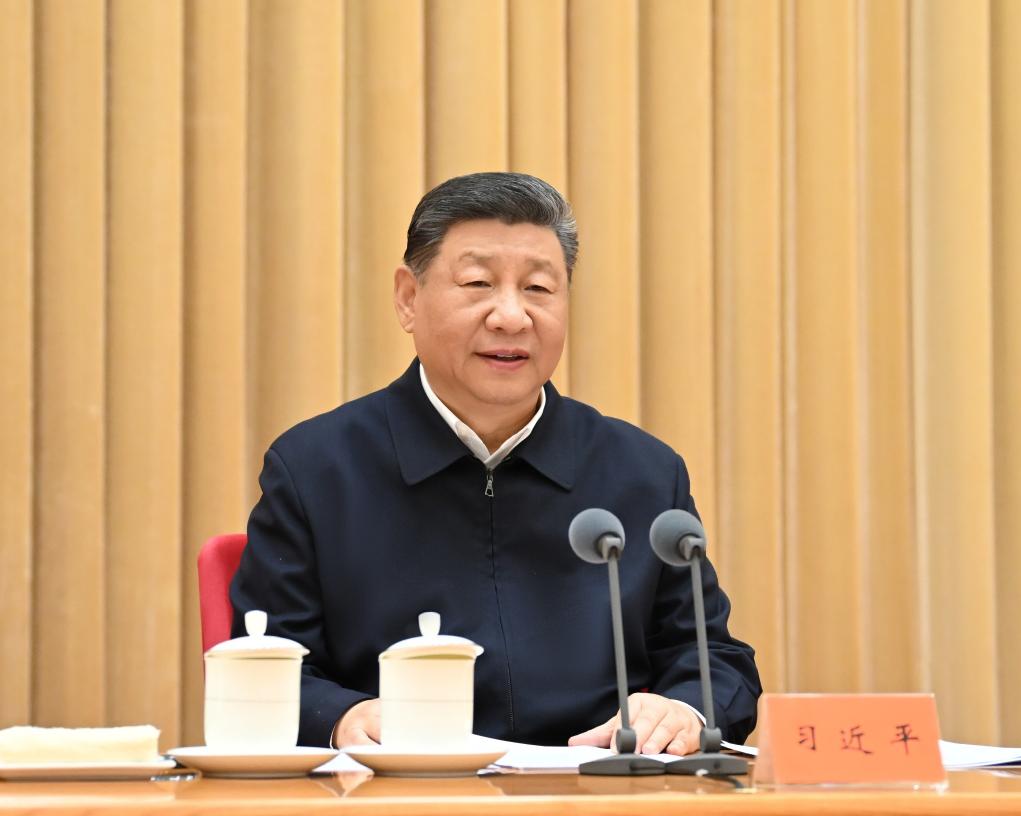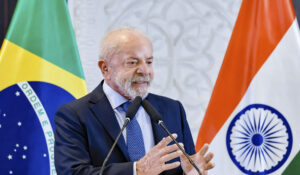
Published 09/04/2025 19:04 | Edited 09/04/2025 19:42
US President Donald Trump’s decision to increase import rates to Chinese products to 125% is the latest climbing of trade war. But unlike earlier rounds of tariff clashes, China seems to be more protected and ready for confrontation – economically, politically and diplomatically.
So much so that Trump himself admits back to China, after many aggressive bravado against the Asian giant. “Nothing is over. China wants to make agreement, but does not know how to do. They are proud, Xi (jinping) is proud,” said Trump. “Agreements can be made with everyone. It will be made with China. I just want fair agreements. But they were not being fair,” he said. Trump tried to calm the markets and Americans with a milder tone. “It will work, rest assured,” he said.
Read also: Trump fares come into force and China reacts with historical retaliation
Trump can’t stand market pressure and retreat from tariffs
The new round of tariffs occurs after a series of provocations from the American. Since early April, Trump has started a global tariff, reaching 180 countries. China, in response, increased to 84% to US products and announced sanctions to US companies while formalizing a complaint in the World Trade Organization (WTO).
Even with the potential impact on global trade, Chinese analysts and Beijing authorities see Trump’s new offensive as a sign of political desperation than economic strength.
China reinforces global leadership role
With firm rhetoric and concrete measures, China transforms the crisis into an opportunity to assert itself as an alternative to American hegemony. Beijing’s immediate response involved:
- Inclusion of US companies on the list of “unconvable” entities;
- Reinforcement of diplomatic rhetoric against “commercial bullying”;
- Publication of a “White Paper” explaining its position and reaffirming commitment to fair trade.
Chinese media has promoted an image of resilience and mobilization, contrasting with the instability generated by Unilateral US decisions. The editorial of People’s Daily Trump accused of turning “America First” into “America Only.”
An economy shielded by internal stimuli and regional alliances
Beijing has been adopting structural measures to mitigate the impacts of trade war since 2023. Among them are:
- Policy of stimulating domestic consumptionwhich includes interest cuts and incentive to domestic demand;
- State support to the financial marketwith purchases of actions coordinated by state;
- Regional integrationvia initiatives such as the new silk route and commercial agreements with Southeast Asian countries, which were also targeted by US tariffs.
In addition, China seeks to present itself as the defender of multilateralism in a moment of US unilateralism. President XI Jinping has reinforced the speech of a “shared future community”, captivating countries that suffer from US isolationism.
“The United States are still imposing tariffs and exerting maximum pressure on China, which is firmly opposed to this and will never accept such intimidation,” said a spokesman for China’s Ministry of Foreign Affairs on Wednesday, April 9.
Spokesman Lin Jian made the observations at a daily press conference in response to a request for comments on the announcement that the US would impose a 104% rate on Chinese products.
Lin noted that the Chinese people’s legitimate right to development cannot be private and that the sovereignty, safety and development interests of China are inviolable. China will continue to take resolute and vigorous measures to safeguard its legitimate rights and interests.
“If the US really seeks to resolve the issue through dialogue and negotiation, they must demonstrate an attitude of equality, respect and reciprocity,” Lin added.
“If the US insists on waging a tariff or commercial war, China is ready to fight to the end,” Lin said.
Trade War exposes fragility and isolation from the USA
The US government itself is increasingly isolated in the international arena. Attempts to negotiate with allies like the European Union have failed.
According to The EconomistInternational delegations are frustrated by meetings in Washington for lack of interlocutors with authority to deal with the impacts of the tariff. More than 70 countries have been looking for the US asking for exceptions to tariffs – unanswered.
Even traditional allies now reevaluate their business relations with Washington, fearing the instability generated by Trump’s impulsive protectionism.
Economic Multipolarity and New International Order
The current context marks a historical inflection point in global trade. Trump’s tariff offensive is considered the most disruptive measure since great depression. But unlike the 1930s, China appears today as an economic power capable of leading a coordinated reaction.
The Chinese answer is not just a defensive: it points to a multipolar economic order project, where states do not depend on the goodwill of the US to prosper. Trump’s “America First” may be accelerating exactly what it intends to avoid: the decline of American economic leadership.
As stated by white paper Chinese government:
“The only rational output is the return to dialogue based on equality, mutual respect and reciprocal gains.”
Given this, Beijing seems less and less vulnerable and more ready to compete for protagonism in a world that no longer accepts unilateral impositions.
Source: vermelho.org.br

